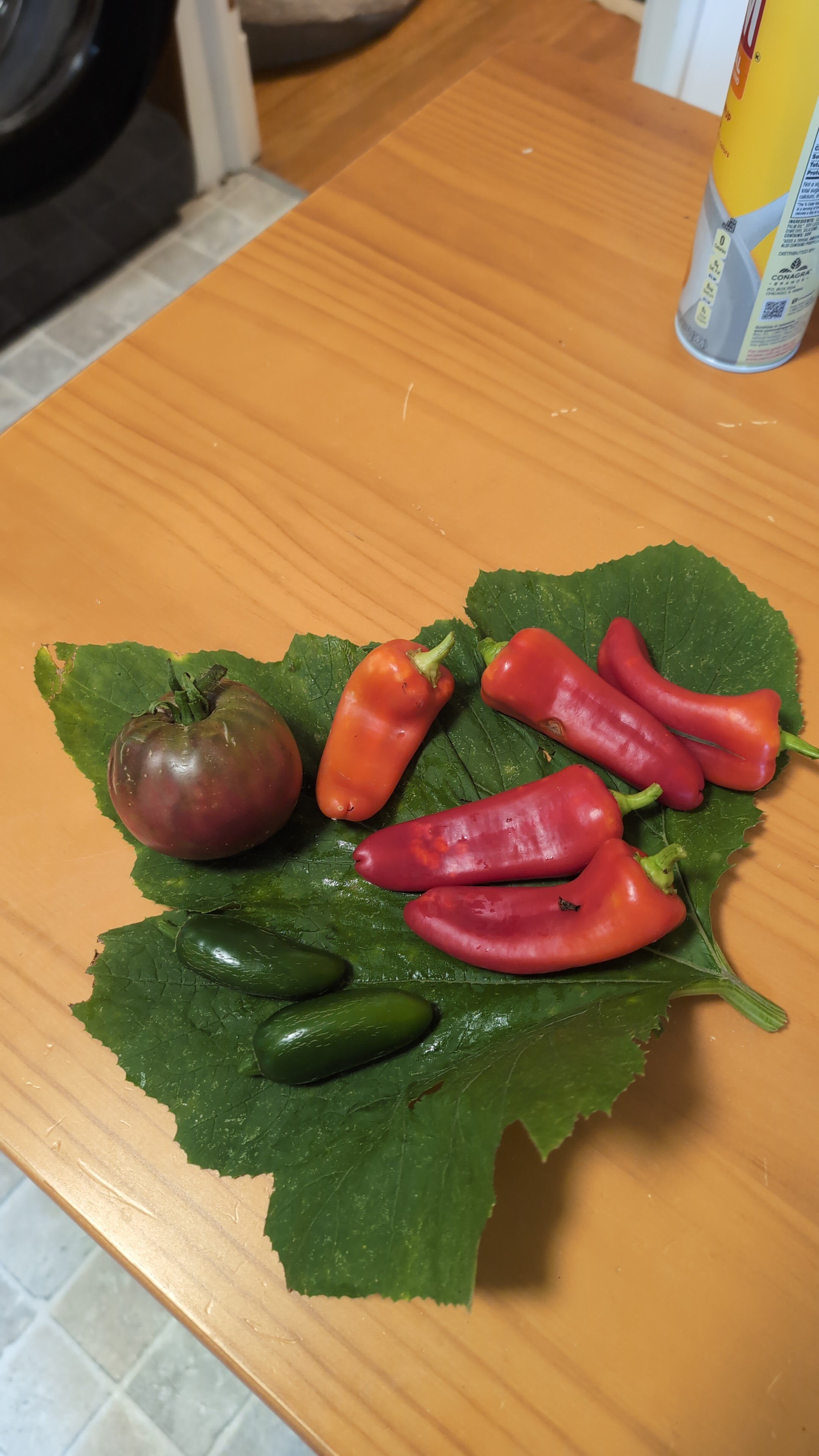this post was submitted on 16 Aug 2024
190 points (99.0% liked)
Gardening
3603 readers
13 users here now
Your Ultimate Gardening Guide.
Rules
- Be respectful and inclusive.
- No harassment, hate speech, or trolling.
- Engage in constructive discussions.
- Share relevant content.
- Follow guidelines and moderators' instructions.
- Use appropriate language and tone.
- Report violations.
- Foster a continuous learning environment.
founded 2 years ago
MODERATORS
you are viewing a single comment's thread
view the rest of the comments
view the rest of the comments

The "stretch marks" on the jalapenos mean they're definitely ready for picking (not all ripe jalapenos have them, but all jalapenos that have them are ripe).
Tomatoes you can pick once they "blush," which means start developing color other than green. Store them inside, stem side down, to finish ripening. You can leave them on the vine to fully ripen, but they'll be much safer inside (from bugs, weather, other damage potential) without any taste loss.
The Italian peppers it's best to wait until they fully turn red, although it's more important to harvest them before you start seeing blemishes, such as the damage on the one in the top-middle in this photo. If you see any damage forming (including any soft spots) pick it immediately. You can always use them like a green bell pepper if they haven't fully ripened yet.
Does that help?
Thanks for the tomato tip. I have so many that have been blushing but then the rabbit has gotten to them, and my good for nothing dogs aren't guarding shit.
I had no idea you should place them upside down. Is there a known scientific reason for placing upside down? Or just an observed best practice?
Tomatoes (all fruits?) ripen from the blossom end up to the stem end, meaning that the blossom end is always at a softer, more delicate stage of ripening compared with the stem end. So by storing the tomato upside down, you're putting the most pressure on the stronger, less ripe end.